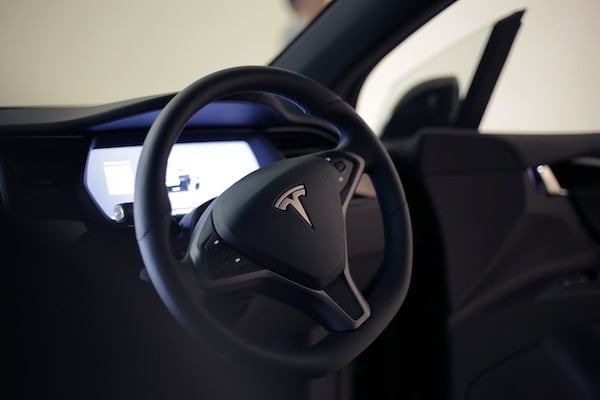Published on
Creativity Required: How a Tesla Partnership is Setting the Stage for Program and Credential Innovation

Regardless of the industry, a successful career requires lifelong learning and higher education institutions are under pressure to evolve to create such an environment. Innovation in program design and credentialing is essential and, at Miami Dade College (MDC), they’re doing just that. Recently awarded the Lumina Foundation Education Innovation Judges’ Choice Prize, MDC’s Accelerated Credentials Training and Skills (ACTS) program was recognized for its creativity in setting students on a lifelong learning pathway while providing them the critical competencies necessary to enter high-demand, high-wage careers.
In this interview, Lenore Rodicio reflects on the importance of programmatic and credential innovation for a modern community college, and shares some insights on how the MDC ACTS program helps them serve the needs of modern learners and employers.
The EvoLLLution (Evo): Why is it important for community colleges to be active in developing programming designed to get adults into high-growth, high-wage industries?
Lenore Rodicio (LR): For so many individuals in communities across the country, community colleges represent the first in a multi-step journey to academic growth and professional success. By providing high-quality, accessible and affordable teaching and learning experiences, community colleges are training a new generation of workforce professionals ready to tackle the demands of the 21st-century global knowledge economy.
It is imperative both for the individual success of students and the economic development of our communities that our colleges develop cutting-edge, innovative programming designed to position adults into all the emerging high-growth, high-wage industries. At MDC, we believe the future is now, and we are focused on developing new programs that lead to job stability and financial security for the residents of our communities. Simultaneously, our programs are assisting industry with sustainable business models by providing talent pipelines.
The work that is underway at MDC—and at community colleges across the country—show that open access and high quality can go hand-in-hand. Being innovative and offering traditional and short-term programs that promote 21st-century skills and create lifelong learners is paramount.
Evo: How can college leaders identify high-growth industries and the skills needed to be successful in those spaces?
LR: First and foremost, it takes an awareness of the changing dynamic of workforce training. College leaders need to be nimble and creative as they develop programs and pathways that directly address the needs of high-growth industries. Equally important is the fostering of working relationships and partnerships with industry experts, whose collaboration and input are instrumental to the success of any workforce development endeavor.
For example, MDC’s launch of the Tesla START program in fall 2019 is a perfect example of how academia and industry can join forces to develop an initiative that puts individuals to work while fulfilling talent and skills gaps in the workforce. Colleges must be at the table with area chambers of commerce and Beacon Councils to ensure educational programs are in line with industry needs and goals.
Evo: What makes Miami Dade College’s ACTS program unique?
LR: MDC ACTS aims to provide job stability and financial security for our students, while supplying a talent pipeline for industry. More specifically, our “earn-and-learn” models focus on co-invested industry partnerships including accelerated training programs whereby participants pay a reasonable tuition fee and are financially compensated by employers while earning a stackable credential. This ultimately leads to the acquisition of professional skills and full-time employment.
MDC’s first industry partner focused on the earn-and-learn model is Tesla Corp. and the launch of the Tesla START program. With this program, students earn an hourly wage, experience hands-on learning and earn an MDC stackable credential (Career and Technical Certificate) alongside a Tesla certification to become a Tesla Service Technician, all within 12 weeks. The Career & Technical Certificate will build into an Associate in Science in Electrical Vehicle technology that is currently under development.
Evo: What infrastructural challenges did you have to overcome to create such a flexible, learner-centered program?
LR: Programs such as the Tesla START require facilities and work spaces to accommodate both the students and instructors, as well as the latest technology to ensure students are trained adequately for high-growth, high-wage jobs. This is when partnerships with industry become instrumental. Tesla chose MDC as its first institutional partner in the Southeastern U.S. So for this particular program, a new state-of-the-art facility is being specifically constructed at MDC’s west campus from the ground up. Tesla provides the vehicles, equipment, instructors, tools and curriculum for hands-on learning.
From the very beginning, MDC and Tesla collaborated to ensure this unique opportunity given to students to become electric vehicle technicians would yield positive results. By combining the resources offered and support by Tesla with the academic resources of our School of Engineering, Technology and Design, we have ensured our program delivers the education and credentials that employers value in job candidates.
Author Perspective: Administrator
Author Perspective: Community College



